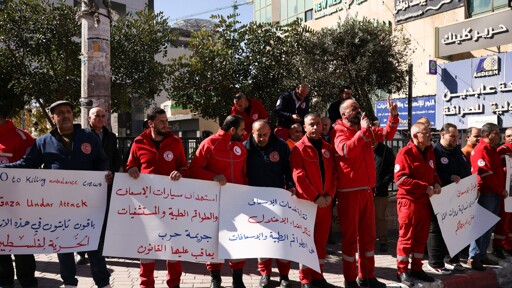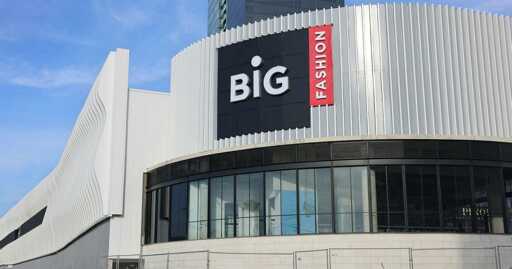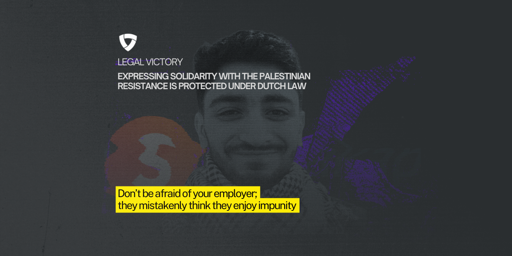I assume it is by ignorance of the history, but you should be very careful not to make apologies for Nazi collaborators unless you know for sure that they were coerced. BMW and the Quandts went way beyond what would be explicable by coercion. The reason why you didnt hear more of it is because the UK and US protected Quandt like they protected many other Nazis in order to quickly build up a right wing bulwark against the “communist threat” in Europe. Claiming to have been coerced is the typical excuse and repeating this narrative is helping fascists and their allies to revision history.
https://de.wikipedia.org/wiki/Quandt_(Familie)
spoiler
Nach der nationalsozialistischen Machtübernahme und anfänglichen Schwierigkeiten im Verhältnis zu den neuen Machthabern (der NSDAP nahestehende Teile des Vorstands der AFA versuchten 1933 ohne Erfolg, Günther Quandt zu stürzen) konnte Quandt seine Stellung innerhalb der deutschen Industrielandschaft festigen. 1937 wurde er zum Wehrwirtschaftsführer ernannt. Die Akkumulatoren der AFA fanden unter anderem in U-Booten und Raketen Verwendung, die Textilbetriebe lieferten – wie schon im Kaiserreich und in der Weimarer Republik – Uniformen und Decken für die Wehrmacht. Andere Quandt’sche Unternehmen stellten Waffen und Munition her.
Vom NS-Staat enteignete Konkurrenzunternehmen jüdischer Eigentümer konnten von Quandt günstig übernommen werden.
Bekannt ist in diesem Zusammenhang der Fall der Batterienfabrik Société Anonyme des Accumulateurs Tudor des Luxemburger Unternehmers Léon Laval in Florival bei Wavre. Quandt war bestrebt, dieses Werk der AFA einzuverleiben. Nach der Eroberung Luxemburgs und Belgiens durch die deutschen Besatzer versuchte Quandt mit Unterstützung der Gestapo, Laval durch Verhöre zu zwingen, seine Aktien an Quandt zu verkaufen. Nach seiner standhaften Weigerung wurde Laval zunächst in Luxemburg, dann in Deutschland bis Kriegsende inhaftiert.[3]
deepl:
After the National Socialist takeover and initial difficulties in his relationship with the new rulers (parts of the AFA Board of Directors close to the NSDAP tried unsuccessfully to overthrow Günther Quandt in 1933), Quandt was able to consolidate his position within the German industrial landscape. In 1937, he was appointed military economic leader. AFA’s accumulators were used in submarines and rockets, among other things, and the textile companies supplied uniforms and blankets for the Wehrmacht, as they had done during the German Empire and the Weimar Republic. Other Quandt companies manufactured weapons and ammunition.
Competing companies of Jewish owners expropriated by the Nazi state were taken over by Quandt at favorable terms.
The case of the Société Anonyme des Accumulateurs Tudor battery factory owned by the Luxembourg entrepreneur Léon Laval in Florival near Wavre is well known in this context. Quandt endeavored to incorporate this factory into the AFA. After the conquest of Luxembourg and Belgium by the German occupying forces, Quandt, with the support of the Gestapo, tried to force Laval to sell his shares to Quandt through interrogation. After his steadfast refusal, Laval was first imprisoned in Luxembourg, then in Germany until the end of the war.[3]
spoiler
Schon wenige Wochen nach der Kapitulation im Mai 1945 hatte die AFA als eines der ersten Unternehmen eine Betriebsgenehmigung der britischen Besatzungsmacht bekommen. 1946 wurde Günther Quandt auf Anordnung der US-Militärregierung verhaftet und blieb zwei Jahre interniert. Belastende Dokumente über Günther Quandts Aktivitäten im Dritten Reich hielten die Briten allerdings zurück und leiteten sie nicht an die amerikanische Anklagebehörde weiter. Bei den Nürnberger Kriegsverbrecherprozessen wurde deshalb trotz anfänglicher Ermittlungen keine Anklage gegen ihn erhoben. Im Rahmen der Entnazifizierung musste sich Quandt vor einer Starnberger Spruchkammer unter anderem wegen seiner Rolle bei der Enteignung Léon Lavals verantworten. Laval hatte die Lagerhaft überlebt und trat als Nebenkläger im Verfahren auf. Trotz seiner Verstrickung in die Verbrechen des Dritten Reichs endete das Verfahren 1948 mit einer Einstufung Quandts als „Mitläufer“. Die Rolle von Quandts Rüstungsunternehmen während des Krieges und der Einsatz von Zwangsarbeitern wurden nie Bestandteil eines Verfahrens gegen ihn. Quandt selbst erklärte, er sei „von der nationalsozialistischen Regierung jahrelang auf das Schwerste verfolgt worden“, was nach Aussage des Quandt-Biographen Rüdiger Jungbluth als absurd anzusehen ist; das Spruchkammerverfahren selbst sei eine „Farce“ gewesen.[1]
Just a few weeks after the capitulation in May 1945, AFA was one of the first companies to receive an operating license from the British occupying power. In 1946, Günther Quandt was arrested by order of the US military government and interned for two years. However, the British withheld incriminating documents about Günther Quandt’s activities in the Third Reich and did not pass them on to the American prosecution authorities. As a result, no charges were brought against him at the Nuremberg war crimes trials, despite initial investigations. As part of the denazification process, Quandt had to stand trial before a Starnberg tribunal for his role in the expropriation of Léon Laval, among other things. Laval had survived imprisonment in the camp and appeared as a joint plaintiff in the proceedings. Despite his involvement in the crimes of the Third Reich, the trial ended in 1948 with Quandt being classified as a “fellow traveler”. The role of Quandt’s armaments company during the war and the use of forced laborers never became part of the proceedings against him. Quandt himself declared that he had been “persecuted by the National Socialist government for years in the most severe manner”, which, according to Quandt biographer Rüdiger Jungbluth, must be regarded as absurd; the Spruchkammer proceedings themselves were a “farce”[1].




















And the comment replied to specifically claimed air to be liquid, which it is not at typical temperatures and pressures.